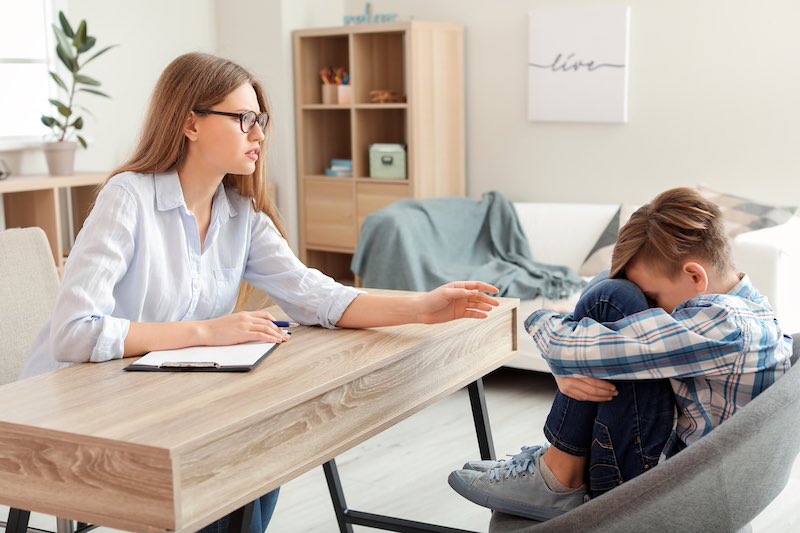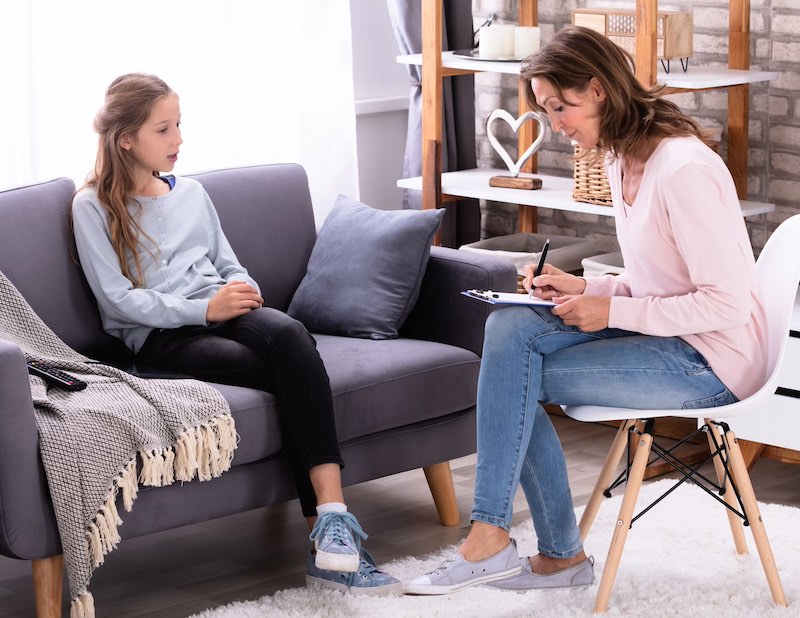1. Therapeutic Techniques: Children’s therapy employs a variety of evidence-based therapeutic techniques tailored to the child’s age, personality, and specific concerns. These techniques may include play therapy, art therapy, somatic therapy, Clayfield therapy, talk therapy, cognitive-behavioural therapy (CBT), and more.
2. Understanding and Communication: Therapists are skilled in creating a safe and empathetic environment where children can express their feelings, thoughts, and concerns. They use age-appropriate language and methods to facilitate effective communication.
3. Assessment and Diagnosis: Therapists assess the child’s emotional and behavioural challenges, often working closely with parents, teachers, and caregivers to gather insights. In some cases, a formal diagnosis may be made if a mental health condition is present.
4. Goal-Oriented Approach: Children’s therapy is goal-oriented, with therapists and clients collaboratively setting specific objectives to work toward. These goals can range from managing anxiety or depression to improving social skills, coping with trauma, or addressing academic difficulties.
5. Family Involvement: Family plays a crucial role in the child’s therapy journey. Therapists often involve parents or caregivers in sessions to provide support, guidance, and strategies for addressing issues at home.


• Behavioural Problems: Children’s therapy can help address issues such as aggression, defiance, bedwetting, and temper tantrums.
• Emotional Difficulties: It provides a safe space for children to discuss and manage emotions like anxiety, depression, grief, and low self-esteem.
• Trauma and Abuse: Therapists assist children in coping with traumatic experiences and abuse, ensuring their emotional healing and recovery.
• Developmental Delays: For children with developmental delays or disorders, therapy can aid in achieving developmental milestones.
• Academic Challenges: Children’s therapy can help improve concentration, learning difficulties, and school-related stress.
• Social Skills: It assists children in developing healthy relationships, resolving conflicts, and improving social interactions.
• Improved Emotional Well-being: Therapy helps children understand and manage their emotions more effectively, leading to increased happiness and confidence.
• Enhanced Coping Skills: Children learn valuable coping strategies to deal with life’s challenges.
• Better Relationships: Improved social skills and communication lead to healthier relationships with peers and family members.
• Academic Success: Addressing academic difficulties can result in improved school performance.
• Early Intervention: Early therapy can prevent emotional and behavioural problems from becoming more severe in adulthood.


1. We start only with a parent session so you can detail your concerns about your child privately.
2. Following the session, we meet with your child if they are in primary school, to ascertain their concerns and observe their patterns of behaviours.
3. Depending on the child, we may offer a kinder/school visit to observe the child in their natural environment.
4. We may ask the parent to respond to some questionnaires and we will do a developmental history.
5. We will have ready an understanding of your child and be planning the treatment goals.
6. We will use evidence-based interventions and developmentally appropriate techniques to plan the upcoming sessions.
Think of therapy as a process of sculpting and shaping your child’s emotional and mental well-being. Just as an artist needs time and consistency to create a masterpiece, we need regular and ongoing sessions to help your child develop the tools and skills necessary to thrive.
1. Consistency: Consistency is key in therapy. Regular sessions allow us to build a strong therapeutic relationship with your child and understand their unique needs and challenges comprehensively.
2. Skill Development: Much like learning a new skill, developing emotional and behavioural coping strategies takes time. Weekly or fortnightly sessions provide your child with the opportunity to practice these skills in their everyday life.
3. Behavioural Change: For meaningful changes to occur, we need to work through issues, establish new patterns of thinking and behaviour, and reinforce these changes consistently over time.

Minimum of 20 to 30 Sessions
While each child’s progress is unique, research and our experience indicate that a minimum of 20 to 30 sessions is often necessary to see significant improvement. It’s important to remember that therapy isn’t a quick fix but a journey towards lasting positive change.
Your Child’s Well-being is Our Priority
We are committed to providing the highest quality care for your child. Our therapists are trained to tailor each session to your child’s specific needs and progress. We will regularly assess your child’s development and adjust our approach accordingly.
Parental involvement
We encourage open communication between sessions, we use a family systems lens, and we work with parents alongside the process. and we want you to be part of the journey. If you have any questions, concerns, or observations about your child’s progress, please don’t hesitate to reach out.
We ask that you stay in reception, and we will agree on one of two ways of communicating:
a) A 40-minute session with your child and a 10-minute feedback at the end of each session in the room, not in the reception area
or
b) 50-minute session with the child, and every three sessions, a parent session for debriefing.
Parenting Training
When a child starts therapy, the whole family system needs a change, and all involved in the family benefit from doings things differently to have a different outcome. So we encourage our families to do one of our group parenting programs that we always have available in our service to strengthen the bonds in the family and create nurturing relationships that will last forever.
Fill out the form below, and we will be in touch shortly to confirm.